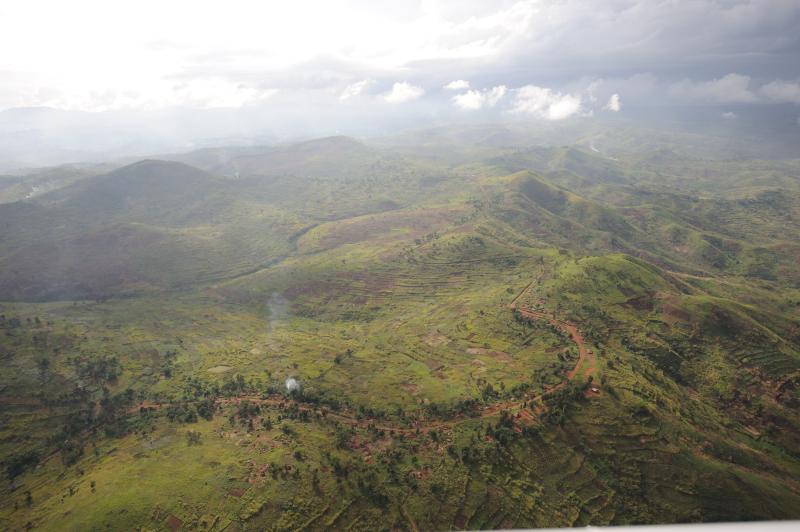

In December 2023, the Steering Committee of the DRC National REDD+ Fund (FONAREDD) approved five new projects and two project extensions, bringing the number of CAFI-funded projects through FONAREDD to a total of 23, 20 of which are active. This week, we highlight the 2nd phase of the Land Tenure Reform Support, known by its French acronym PARF 2, which builds on the successes of PARF 1, one of the first projects funded by CAFI in the DRC.
Since 2016, CAFI has supported national stakeholders towards more secure land tenure in the DRC through its multisectorial, provincial- scale projects (PIREDD) as well as through a Land Tenure Reform Support Project ("PARF 1" ). This project, implemented by UN-Habitat, enabled the establishment of the new National Land Tenure Reform Commission, and accelerated key reformative advancements including the adoption of the Land Tenure Policy, a drafted new Land Tenure Law, and strengthened land tenure processes and practices in rural areas.
The project approved in December 2023, "PARF 2", is worth $15 million and signals CAFI's renewed commitment to support the Ministry of Land Tenure Affairs on land tenure reform. It is designed to raise awareness around the Land Tenure Policy and Law, and to pilot, formalise and disseminate tools for developing a decentralised land information system (LIS). A crucial new tool to land tenure and land use planning in the DRC, the LIS will feed data into a national tracking platform designed to reduce land-use conflicts with a positive ripple effect on deforestation and poverty. In line with PARF 1, "PARF 2" pursues the overall objective of improving land tenure security for local communities, including rural women, indigenous peoples, and other vulnerable populations, while also promoting the continued investment in sustainable land use (i.e. agriculture, agroforestry and forest plantations).
In rural regions of the DRC, many communities occupy land they've inherited, informally acquired, or received from their community while lacking official ownership documents. This mix of customary and formal land tenure laws stress land ownership uncertainties and is known to result in land disputes, affecting sustainable resource management and local development processes.
The LIS is being introduced to address some of these challenges. The system includes a range of elements designed to better secure local land rights, both collective and individual, in the DRC. Key characteristics of the LIS are: